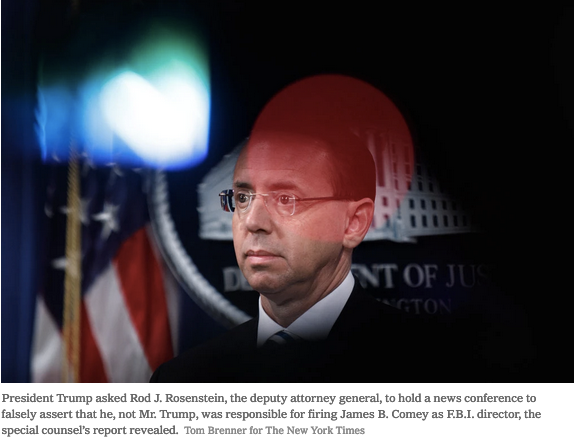WASHINGTON — Rod J. Rosenstein, the deputy attorney general, praised President Trump last spring for backing the rule of law and commended the Constitution and American culture for protecting lawfulness. “I don’t think there’s any threat to the rule of law in America today,” he said at a celebration of the concept.
Mr. Rosenstein left unmentioned that he and other senior leaders at the department and the F.B.I. were enduring Mr. Trump’s sustained attacks on law enforcement in both public and private. The president had demanded Mr. Rosenstein falsely claim responsibility for dismissing the bureau’s director and had toyed with firing the attorney general, prompting Mr. Rosenstein and the Justice Department’s No. 3 official to vow to quit if the termination happened.
The long-awaited report by the special counsel, Robert S. Mueller III, released on Thursday painted a portrait of law enforcement leaders more fiercely under siege than previously known. They struggled to navigate Mr. Trump’s apparent disregard for their mission through a mix of threats to resign, quiet defiance and capitulation to some presidential demands. While their willingness to stay quiet might have protected their institutions, it also helped empower Mr. Trump to continue his attacks.
Mr. Trump made good on some threats, forcing out Attorney General Jeff Sessions the day after the midterm elections in November. The third-ranking Justice Department official, Rachel Brand, left three months before Mr. Rosenstein’s speech to become Walmart’s top lawyer. Mr. Rosenstein, who had an inside look at the investigation as its overseer and at Mr. Trump’s behavior as a top political appointee, is himself set to depart.




